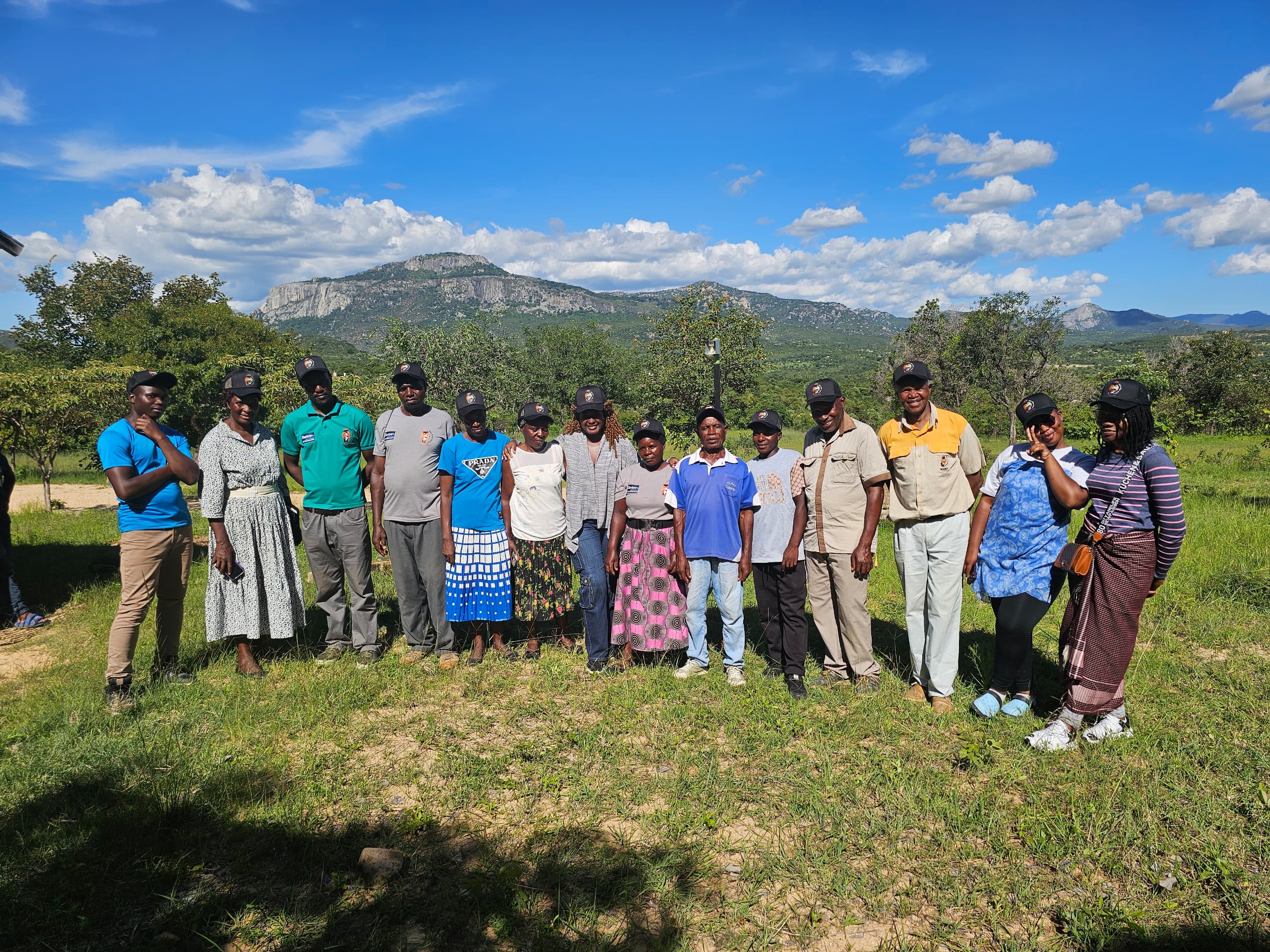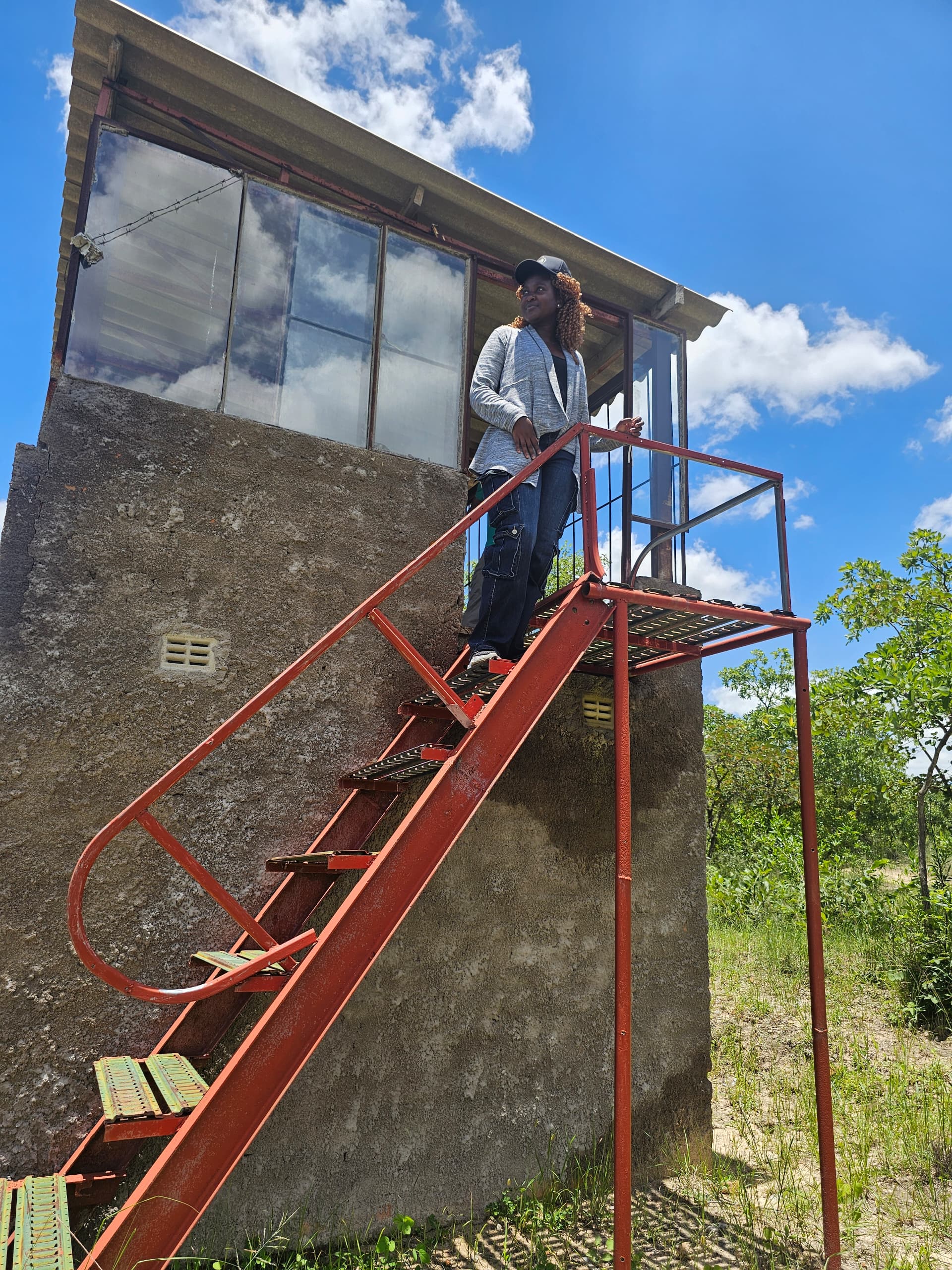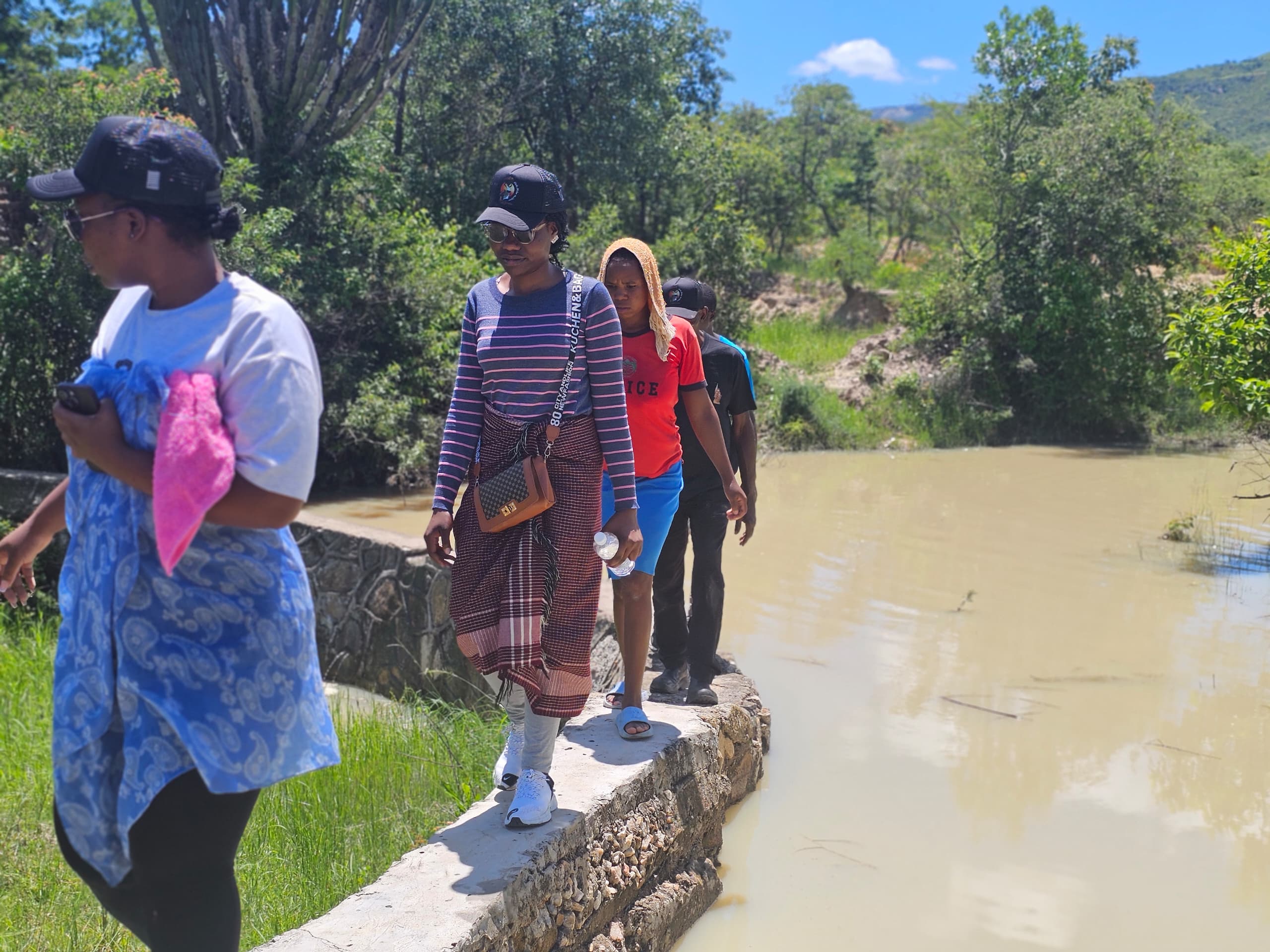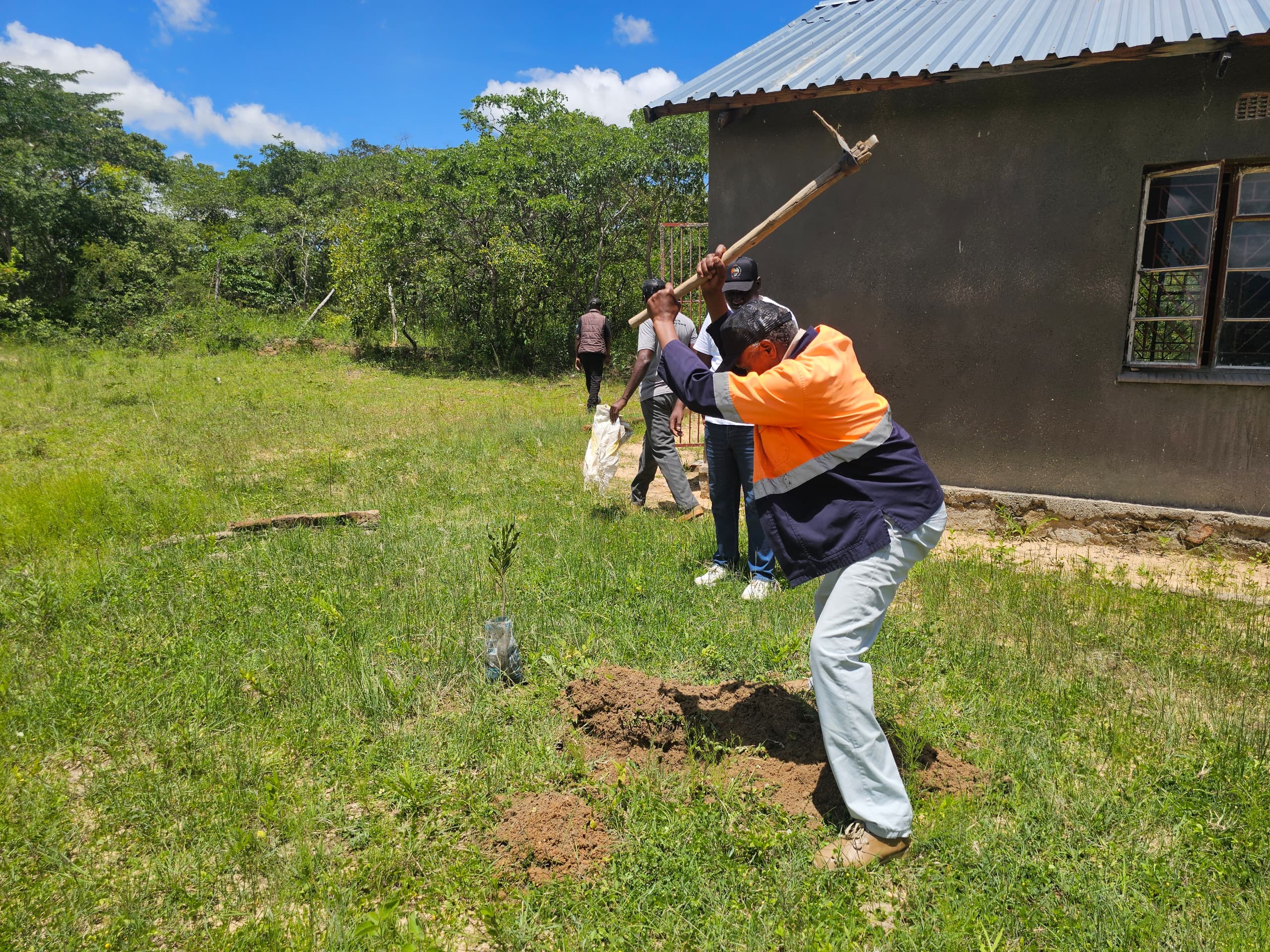Community-Led Climate Resilience in Mutasa
Date: 5 June 2025 | Author: Takudzwa Sithole
Discover how Nhaka Afrikan Worldview Trust empowers Mutasa communities through innovative climate resilience projects, combining traditional knowledge and modern education.
- Focus on sustainable agriculture and water harvesting
- Community training and capacity building
- Collaboration with local and international partners
Read more about our ongoing efforts and impact in the Projects Gallery.

Rebuilding After the Storm: The Water Project
The story of resilience begins with destruction and renewal. In 2009, a vital community-based bridge was constructed to serve the community's water management needs. However, nature's fury struck and destroyed this critical infrastructure, leaving the community without this essential resource.
Rather than waiting for external assistance, Nhaka Afrikan Worldview Trust transformed this setback into an educational opportunity. Through their ICY diploma course, they brought together a diverse group of participants, including the current chief, Chief Mutasa, two village heads, and university students. This unique collaboration embodied the organization's philosophy of combining traditional leadership wisdom with academic knowledge.
The ICY program's methodology is elegantly simple yet profoundly effective: identify challenges in your community, then find solutions. The destroyed bridge presented the perfect case study. Students, community leaders, and skilled members within the Mutasa District worked together to secure funding and materials for reconstruction, turning the rebuilding process into both a practical lesson and a community service project. The dam stands as a testament to community self-reliance and indigenous knowledge, constructed entirely through the skilled labor of local hands using traditional building techniques and locally sourced materials. The only purchased input required for this remarkable project was cement, demonstrating how communities can achieve significant infrastructure development through collective effort while minimizing external dependencies and costs.
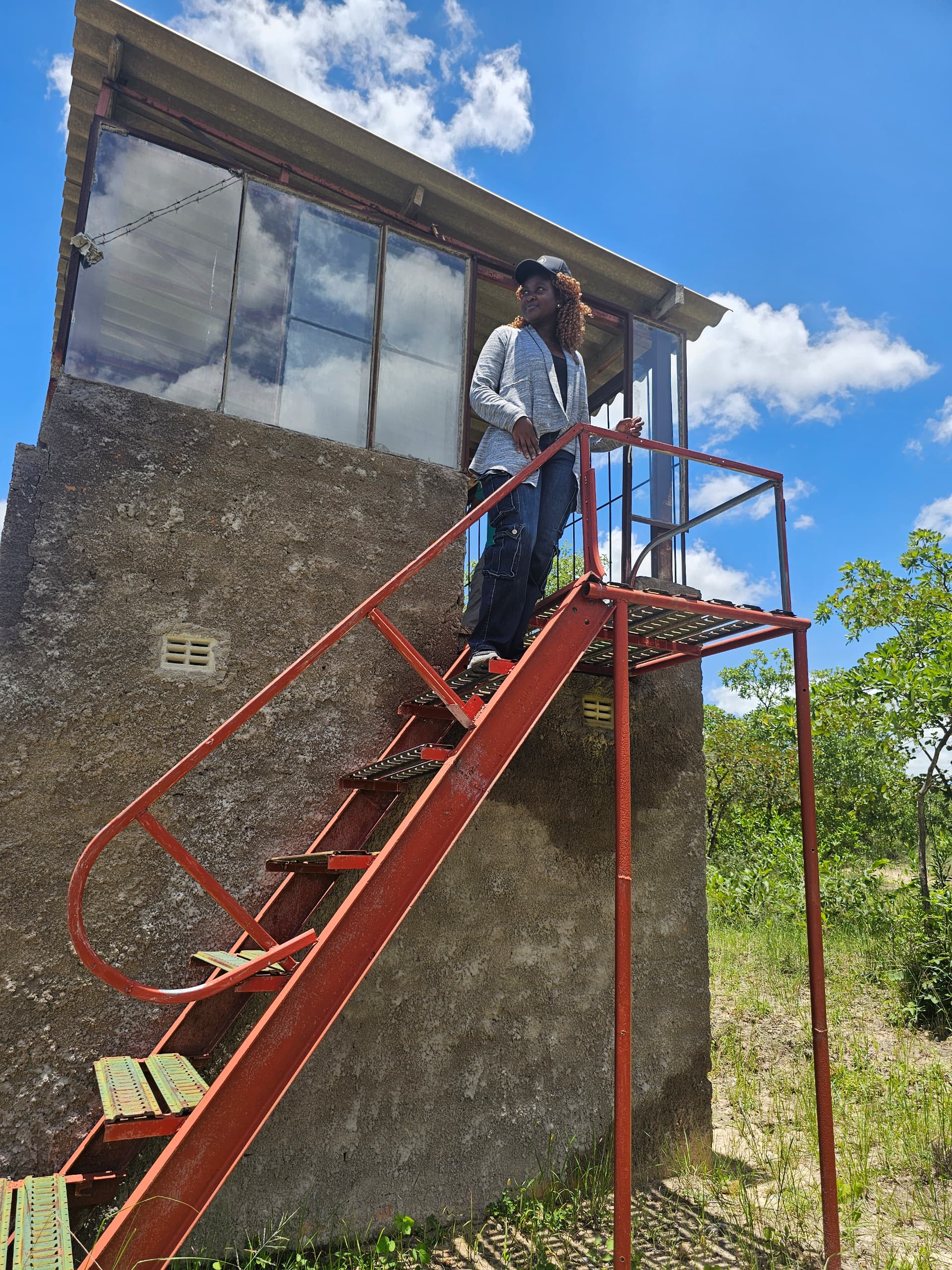
Education Through Action
The program demonstrates how environmental challenges can become powerful educational tools, creating graduates who are not just academically qualified but also practically experienced in community problem-solving.
Climate Adaptation Through Architecture
The program participants identified another critical need: safe accommodation during visits to Mutasa. Their response was both innovative and practical—the construction of the area's first upstairs structure. This multi-story building serves a dual purpose. During normal times, it provides much-needed accommodation facilities for visitors and program participants. It also demonstrates community collective efforts.

Nurturing Nature's Resilience
Beyond infrastructure, Nhaka Afrikan Worldview Trust has embraced the wisdom of working with nature rather than against it. Under the leadership of Country Director Mr. Dzere, the organization has launched comprehensive tree planting initiatives that bring together traditional leadership and academic institutions in a shared environmental mission.
The tree planting program represents a powerful collaboration between Mr. Dzere, the local sabhuku (village head), university students, and volunteers. Together, they have focused on establishing indigenous species that are naturally adapted to local climate conditions and therefore more resilient to environmental changes. The selection includes valuable native trees such as baobab, mumve, and macadamia, each chosen for their specific benefits to both the ecosystem and the community.
The mighty baobab, known as the "tree of life," provides nutrition through its fruit and leaves while storing vast amounts of water in its trunk—a crucial adaptation for drought resilience. Mumve trees offer traditional medicinal benefits and food security, while macadamia trees provide both economic opportunities through nut production and environmental benefits through their deep root systems that prevent soil erosion.
This collaborative approach to reforestation serves multiple purposes: it helps restore local ecosystems, provides sustainable food and economic sources through indigenous fruits and nuts, and creates natural barriers against climate impacts like soil erosion and flooding. By bringing together the Country Director's vision, the sabhuku's traditional knowledge, and students' energy and learning, the program ensures that environmental restoration is both scientifically sound and culturally appropriate.
The participation of university students in these tree planting activities creates another layer of the ICY educational experience, where students learn about indigenous species, traditional ecological knowledge, and practical conservation techniques while contributing directly to climate adaptation efforts.
A Model for Community-Driven Climate Action
The work of Nhaka Afrikan Worldview Trust illustrates how effective climate action emerges from the ground up. By combining traditional knowledge with modern education, practical skills with theoretical understanding, and immediate needs with long-term planning, they have created a replicable model for community resilience.
Their approach recognizes that those who live with climate impacts daily are often best positioned to develop appropriate solutions. The ICY diploma course methodology—identify challenges, find solutions—provides a framework that other communities can adapt to their own specific circumstances and challenges.
In an era where climate change demands both urgent action and sustainable solutions, Nhaka Afrikan Worldview Trust demonstrates that the most powerful responses often come from communities themselves, armed with education, empowered by collaboration, and guided by the practical wisdom that emerges from living closely with the land.

